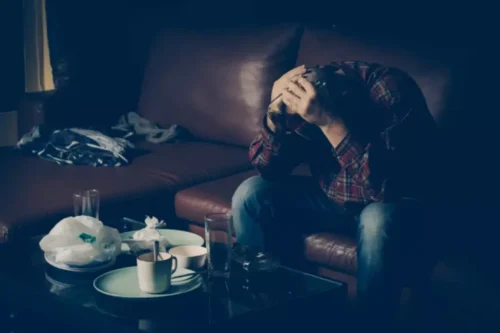
Seven of the fourteen residents living at the residence at the time participated in the focus group (all non-Hispanic White; five males and two females); all those who came to learn more about the focus group agreed to participate. The demographic breakdown (gender or race/ethnicity) of the focus group was representative of those who were living in the house at the time. The focus group lasted approximately 60 minutes and staff digitally audio-recorded the group. In the study that Laudet and colleagues (2009) conducted, two-thirds of the clients who left treatment (67.2%) said that nothing could have been done by the program to keep them engaged in services. Case management or activities to otherwise access or provide social services are often referred to as “ancillary services” (Substance Abuse and Mental Health Services Administration, 2018), a name denoting their subordinate status to other clinical services that programs can provide to clients.
Regulatory Framework for Sober Living Homes in Florida
In 2020, Arizona began requiring sober living homes to register for licenses, as well. New Jersey followed in 2018, requiring sober living homes to register for a “Cooperative Sober Living Residence License” with New Jersey’s State Department of Community Affairs. In mash certified sober homes addition to licensing and approvals, it is also advisable for these residences to get local and state tax clearances if they are run as a community. There is much to be discussed regarding how the purpose of this residency program may be carried out; there are many things that need to be considered, including funding. Having none of the above facilities does not equal an organization with the right to obtain a license that allows them to serve residents. Additionally, a drug treatment hospital through the Department of Social Services may require licensing certificates from other government entities and licensed by the Department.
- Otherwise, the objective of reintegrating them into a healthy lifestyle will run the risk of being compromised.
- They also must participate in voluntary certification programs if they wish to qualify for state funding.
- This is because sober-living facilities do not offer treatment services and are instead groups of individuals, with legally recognized disabilities, living together as a single household or unit.
- In response, SAMHSA has announced funding opportunities for grants to prevent substance misuse and treat SUDs, emphasizing the government’s commitment to supporting recovery initiatives, including sober living homes.
- By offering a supportive and structured environment, sober living homes play a pivotal role in preventing relapse and promoting personal growth.
Variations in State Regulations for Sober Living Homes

As long as your sober living home doesn’t violate zoning ordinances and other local regulations — the same ones that apply to all residential housing — then you are good to go. A faith-based sober living home can be an excellent option for residents who want to incorporate their faith into their recovery journey. The National Alliance for Recovery Residences (NARR) is a nonprofit organization that provides support and guidance for sober living homes. Becoming a member of NARR can help keep a sober living homestay up-to-date on best practices and standards in the field. Having a sponsor can be instrumental in helping residents stay on track in their recovery.

Staff
Regardless of organizational structure and services provided, fundamental to all types of recovery housing is implementation of the social model principles of recovery. Given these concerns, even though NARR representatives would like to see widespread standards, they are wary of mandatory licensure programs—especially when there is not government funding provided to support recovery houses meeting the standards. Some jurisdictions with certification programs, like Massachusetts, have used state dollars to support recovery housing specifically, which Mr. Sheridan says is crucial to maintain access while imposing regulation.
The Benefits of Sober Living Homes
Similarly, California’s initiative to allow cities more regulatory control over sober living homes underscores the need for local governance in addressing community concerns. The balance between adequate oversight and the operational viability of sober living homes is delicate. Effective regulation is necessary to prevent fraud and exploitation, yet it must be designed to support the recovery process and ensure accessibility to these crucial living spaces. For instance, Arizona has been deliberating Senate Bill 1655 and Senate Bill 1361, aiming to tighten https://ecosoberhouse.com/ behavioral health facilities and sober living homes regulations.
Enhancing Sober Living Home Regulations for Safety and Effectiveness

Recent legislative efforts, such as the introduction of SB1361, aim to refine the definition, licensing, and oversight of sober living homes. By increasing the civil penalty cap for violations and defining ‘sober living home’ in state law, these changes seek to enhance the quality and safety of these recovery spaces. Recent legislative efforts, like Arizona’s SB1655 and California’s proposed state bill, highlight the ongoing evolution of sober living home regulations.
Public Transportation
If you allow pets in your sober living home, you will need to have policies in place to ensure that the pets are well-behaved and that they do not pose a risk to other residents. You should also have a designated area for pets to relieve themselves and ensure that the area is regularly cleaned. You will need to set up accounts with the local utility companies for electricity, gas, water, and trash removal. It’s important to ensure that the utilities are in good working order and that they are regularly maintained to avoid any issues. You should research the local rental market to determine a fair price for your location.

Lastly, fostering collaboration between sober living homes and local governments can address concerns such as neighborhood disruption while promoting a recovery-friendly environment. Moreover, the Substance Abuse and Mental Health Services Administration (SAMHSA) has highlighted the prevalence of SUDs, noting that millions of Americans meet the criteria for having an SUD. In response, SAMHSA has announced funding opportunities for grants to prevent substance misuse and treat SUDs, emphasizing the government’s commitment to supporting recovery initiatives, including sober living homes. For instance, the push for tighter regulations due to fraud scandals drug addiction indicates a drive towards greater accountability and protection for residents in Arizona.
